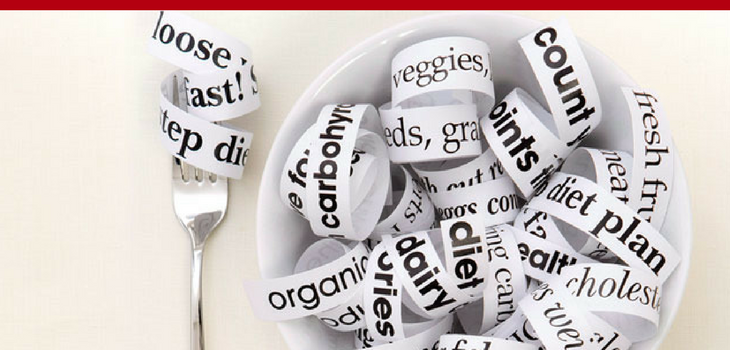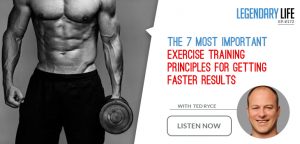by Ted Ryce
264: Fix Your Diet: Understanding Macronutrients, Calories, Training, Supplements and More (Through an Evidence-Based Approach) with Alan Aragon
There are so many diets out there, but which ones actually work? In this episode, renowned nutrition expert Alan Aragon will share what the science says about the most popular diets while explaining the long-term effects on your body and health. Plus, he will crack the latest fish oil, coconut oil, and butter controversy. Listen to this episode and learn how to fix your diet so you don’t get confused by nutrition advice again.
Brief Intro:
The guest today is Alan Aragon, and if you’re in the fitness industry, you’ve likely heard of him. He co-authored the most-viewed article in the history of the Journal of International Society of Sports Nutrition on post-workout nutrition. He’s the guy who helped us change our post-workout protein recommendations based on the best evidence. Not only has he worked with notable clients like Stone Cold Steve Austin, Derrick Fisher and Pete Sampras, but he also helps educate other fitness professionals about what they do with their clients regarding nutrition. Alan specializes in fat-loss nutrition, muscle-building nutrition and he’s here today to give us a different perspective.
This is an information packed episode. Alan will go into fat loss and what people need to do to finally start getting the results they want. Ted and Alan also dive into the ketogenic diet, which is super popular right now, so you’ll learn about the effectiveness of it as well as what it means long-term and whether you should do it or not. Also covered are dietary fats and their effect on cardiovascular health as well as weight-loss plateaus, why they happen and how you can get around them.
Alan brings the evidence-based approach. He’ll share what being evidence-based really means and why you should care about it even if you’re not a researcher or in the fitness industry.
In this episode, you’ll learn:
- What Alan does and his journey from personal trainer to nutritional counselor, researcher, and lecturer (4.29)
- New research on improving body composition and athletic performance (5.35)
- The most impressive person Alan has worked with (7.03)
- What evidence-based really means and why it matters to your health (9.35)
- The misconception and the reality regarding research results and why you still need to pay attention to personal trials/self-experiments (12.40)
- Why there is confusion about the first law of thermodynamics and why it matters (16.16)
- The importance of training to improve body composition (19.05)
- Ketogenic diet vs Calories-in-calories-out (20.50)
- The importance of protein in your diet (25.05)
- Insulin and weight gain (26.22)
- Why there’s so much confusion over health and fitness information (28.30)
- Is the ketogenic diet safe? (31.55)
- Making sacrifices to lose weight: Are they worth it? (36.03)
- Can a ketogenic diet help fight cancer? (37.20)
- How fat affect your heart’s health (40.30)
- Health benefits of coconut oil, butter, and blood lipids (43.00)
- The craze of fish oil supplementation of the early 2000s and what the research is saying now (46.46)
- The web of epidemiology, tightly controlled experiments and how the two types of literature converge (52.32)
- Food quality vs counting calories (55.35)
- 3 Reasons you’re not losing weight on a calorie deficit diet (1.02.05)
- What non-exercise activity thermogenesis (NEAT) is and why you need to be aware of it (1.05.20)
- How to effectively manage clients expectations (1.09.22)
Like this show? Please leave us a review here — even one sentence helps! Consider including your Instagram handle so we can thank you personally.
“Instead of looking at the dietary fatty acids individually, let’s look at whether this food as a whole is overly processed and overly refined, or whether it’s mostly whole.” Share on X “Before even reading the body of the study, you look at the authors of the study and you know exactly what you’re in for.” Share on X
Ted’s Takeaways:
What an amazing guy Alan is. Not only is he a wealth of knowledge but his heart is in the right place. He could easily be sensationalist and add to the misinformation out there (while profiting from it) like so many other people in the nutrition space are doing. But he’s trying to give you the best information based on the best evidence that we have, not just on research but his own personal experience working with clients for over 20 years.
- Nutrition is just a wickedly complex field. If you’re having trouble keeping up with some of the statements Alan and other guests have made, it’s because it’s so complex and we’re just beginning to scratch the surface.
- Calories matter. Energy balance matters. No matter what you are experiencing, this law of thermodynamics or the law of conservation of energy is always at work. That energy always has to go somewhere and we’re never violating it regardless of how frustrated we become with our results.
- Stay away from nutrition extremes, like the ketogenic diet. If you want to give it a try it’s probably a good experiment, but the magical benefits that zealots say it has are overblown. A lot of the same things can be accomplished with other diets.
- If you stick to the most minimally refined sources of fat—e.g. olives instead of olive oil, coconuts instead of coconut oil—the better of you are probably going to be. It’s also important to know the impact of fats whether you’re in a hyper-caloric vs. hypo-caloric states.
- Fat loss is a war. Dieting is a war. Alan uses that word, and sets up his clients with the right expectations by explaining it to them that way. It isn’t going to be easy, you will be hungry, it’s going to be a learning process. But when you win the battle, you’ll get the results that you want. Make sure that you understand it is hard and make sure you’re well prepared. If you want Ted’s help with that, go to legendarylifepodcast.com/coaching and he’ll help you win that war.









